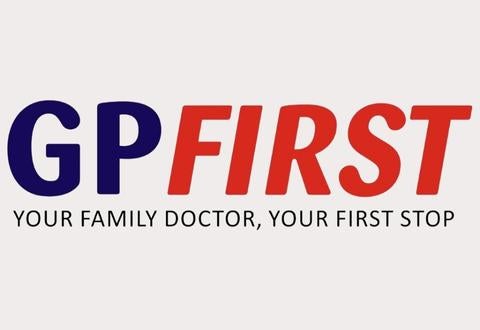Self-Care
In our self-care talks and courses, participants will be equipped with knowledge and skills for self-help and recognise the support and resources available.
| ReXilience® Talk: Stress Management@Work | |
|---|---|
| Summary | There are multiple stressors at work: tight timelines, changes in portfolio, and difficult bosses, colleagues and/or clients. Despite these challenges, everyone aims to put in their best efforts and thrive. This talk enables participants to:
|
| Recommended for |
Individuals who are interested to develop knowledge and skills to manage acute and chronic stress, and to thrive in the workplace. |
| Duration | 1 hour |
| ReXilience® Talk: Self-Awareness@Work | |
|---|---|
| Summary | Awareness of self or the conscious knowledge of one's character, actions, thinking and feelings can help to achieve self-improvement and self-acceptance. However, the truth is that many individuals go through their daily lives with little awareness of what they are doing or why they are doing it. This is not necessarily a bad thing as life may seem much easier not thinking about these little things. The challenge arises when people stop noticing some of the more significant aspects of themselves, such as how they react to or deal with problems. The mind is good at forming blueprints of emotional responses of reacting in unfulfilling ways, which may not allow individuals to be the best version of themselves. Self-awareness helps individuals to be conscious of this so that they are empowered to manage their behaviours, thinking patterns and emotional responses. This talk enables participants to:
|
| Recommended for |
Individuals who are keen to build their knowledge and skills to enhance self-awareness. |
| Duration | 1 hour |
| ReXilience® Talk: Self-Care@Work |
|
|---|---|
| Summary | Burnout does not occur suddenly; it is often gradual. It can result in severe personal and professional consequences. Therefore, it is important for individuals to deliberately take time to care for themselves as well as others at work. This talk enables participants to:
|
| Recommended for |
Individuals who are interested to learn what self-care entails and how to practise it in their daily lives. |
| Duration | 1 hour |
| ReXilience® Talk: Joy@Work | |
|---|---|
| Summary | People intrinsically seek joy. However, individuals may sometimes experience dips in their work life. In moments like this, it is essential to rediscover their motivation and reignite the spark of joy at work. This talk enables participants to:
|
| Recommended for |
Individuals who are interested to develop strategies in creating joy at work. |
| Duration | 1 hour |
| ReXilience® Talk: Emotional Intelligence@Work | |
|---|---|
| Summary | Emotional intelligence (EI) refers to the ability to understand, use and manage one’s emotions in positive ways to relieve stress, communicate effectively, empathise with others, overcome challenges and de-escalate conflicts. When it comes to joy and success in life and the workplace, EI is as important as intellectual intelligence.
This talk enables participants to:
|
| Recommended for |
Individuals who are keen to enhance their self-awareness, social awareness and self-management of emotions through the power of EI. |
| Duration | 1 hour |
| ReXilience® Talk: Empathy@Work | |
|---|---|
| Summary | Being empathic is making a vulnerable choice to share the emotions of others. Empathy is the building block of human connection. Contrary to common belief, nurturing empathy is not the toughest thing to do. Instead, it is communicating empathy to others. Having the ability to communicate emphatically helps us appreciate how others are feeling and be able to respond appropriately. This talk enables participants to:
|
| Recommended for |
Individuals who are interested in gaining awareness on how empathy can build quality relationships with others and gain tips on how to demonstrate empathy to others and oneself. |
| Duration | 1 hour |
| ReXilience® Talk: Compassion@Work | |
|---|---|
| Summary | It is unavoidable that individuals get affected physically and emotionally in their personal lives and at work. All individuals need and are worthy of help, and it is a natural instinct to seek help when one is hurt.
Healing begins with compassion, a process of taking action to alleviate suffering. Often, time pressures, overwhelming workloads and performance demands, coupled with the stigma of verbalising emotions, distract individuals from noticing their suffering at work. As individuals and collectively as an organisation, having compassion and working towards alleviating suffering can bring greater joy to the workplace. Extraordinary things can happen when care and compassion are shown in the workplace.
This talk enables participants to:
|
| Recommended for |
Individuals who are interested to develop strategies in enhancing compassion at work. |
| Duration | 1 hour |
| ReXilience® Talk: Mindfulness@Work | |
|---|---|
| Summary | Imagine starting to eat a packet of chips and then suddenly all that is left is an empty packet. Most individuals have experienced this — it is a common example of being on “autopilot”. Being mindful is waking up and moving out of this autopilot state, to “take the steering wheel” and engage all five senses in the situation.
This talk enables participants to:
|
| Recommended for |
Individuals who are interested to apply mindfulness strategies and enjoy its positive effects at work. |
| Duration | 1 hour |
| ReXilience® Talk: Mental Health Matters@Work | |
|---|---|
| Summary | This talk enables participants to:
|
Recommended for |
Individuals who are interested to address their own biases towards the stigma of mental health conditions, and take a positive step towards building a more inclusive workplace environment. |
| Duration | 1 hour |
| ReXilience® Talk: Hurting the Hands That heal | |
|---|---|
| Summary | Encountering violent individuals has legal implications and can have lasting emotional, psychological and implications on healthcare workers. With healthcare workers, institution administrations, leaders and government working on this intentionally, this issue that detrimentally affects the healthcare system can be managed and improved.
This talk enables participants to:
|
Recommended for |
Healthcare workers who are interested to understand the factors underlying abusive behaviours and learn strategies on how to manage them. |
| Duration | 1 hour |
For more information on the ReXilience® Talks for your organisation, please drop us an email at tracs@cgh.com.sg with your name, contact number and organisation name.
We aim to respond to your query within 3 working days.


















